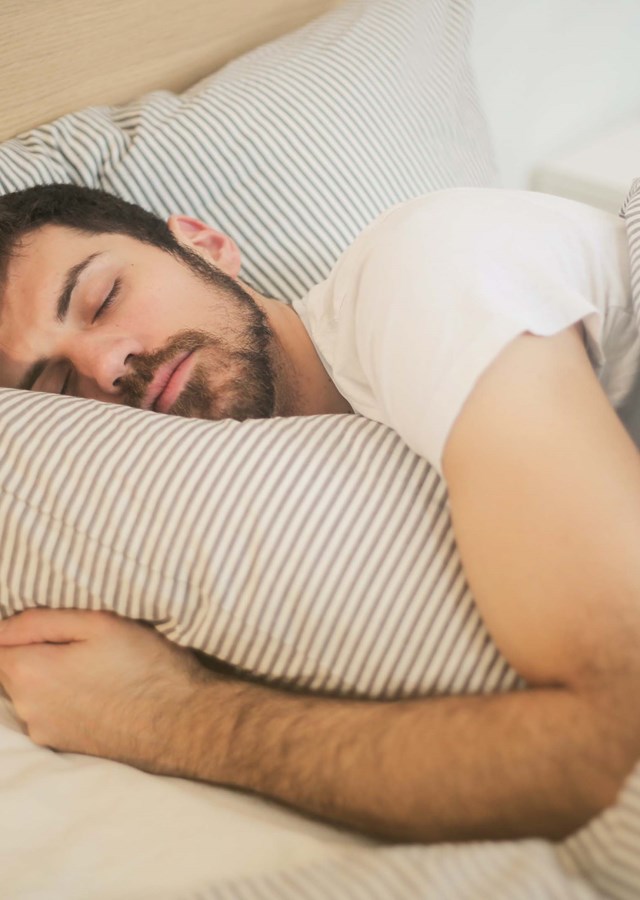Shift work can make it harder to maintain a healthy sleep pattern. Irregular hours, daytime sleeping, and work-related stress all disrupt your rest. But there are many strategies you can adopt to improve sleep quality and help your body and mind recover, even with a shift-based schedule.
1. Establish consistent sleep patterns
Even with irregular hours, consistency is key. Your body thrives when it knows what to expect.
- Try to sleep and wake at the same times every day, even on days off.
- Schedule naps strategically and stick to the same duration and timing.
- Keep a sleep diary to monitor patterns and adjust routines.
Extra tips for shift workers:
- If you work night shifts, consider splitting sleep – a longer sleep after work and a short nap before your next shift.
- Use white noise machines or fans to create a consistent sleep environment during the day.
2. Think about what you eat and drink
Food and drink can significantly affect sleep quality. For shift workers:
|
What to Avoid |
Why |
Timing |
|
Heavy, fatty, or spicy meals |
Slow digestion disrupts sleep |
2–3 hours before bed |
|
Protein-heavy meals |
Difficult to digest for some |
2–3 hours before bed |
|
Caffeine |
Stimulant that delays sleep |
Avoid 6 hours before bed |
|
Alcohol |
Disrupts REM sleep and sleep quality |
Avoid before sleep |
|
Excess liquids |
Leads to nighttime waking |
Avoid 1–2 hours before bed |
|
Nicotine |
Stimulant that keeps you awake |
Avoid near bedtime |
Sleep-friendly foods:
- Dairy and carbohydrate-rich foods containing tryptophan (e.g., bananas, milk, yoghurt, eggs, honey, low-fat cheese)
- Magnesium-rich foods (e.g., dark leafy greens, beans, nuts, seeds)
- Light snacks such as whole-grain toast, oatmeal, or a small smoothie
3. Sleep-proof your environment
Creating a sleep-friendly environment is critical, especially when sleeping during daylight hours.
|
Environment Tip |
How It Helps |
|
Blackout curtains or eye masks |
Blocks daylight, signals your body it’s time to sleep |
|
Sleep headphones or white noise machines |
Reduces daytime noise disruption |
|
Comfortable mattress |
Supports spine and improves rest; replace after ~7 years |
|
Ideal room temperature (16–20°C / 60–67°F) |
Promotes deep, restorative sleep |
|
Reduce blue light exposure |
Limit phones, tablets, and computers 1+ hour before sleep; use blue-light filters |
|
No work in the bedroom |
Associates bedroom with rest, not stress |
Extra tips:
- Keep your bedroom tidy and calming; clutter can increase stress.
- Consider aromatherapy (lavender, chamomile) to signal relaxation.
4. Exercise regularly
Regular physical activity promotes faster sleep onset and improves sleep duration.
- Moderate-intensity aerobic exercise (e.g., fast walking, cycling, swimming) helps reduce insomnia.
- Light stretching, yoga, or Pilates before bed relaxes muscles and calms the mind.
- For physically demanding jobs, avoid heavy exercise immediately before sleep – opt for gentle movements.
Extra tip: Schedule exercise earlier in your shift cycle rather than right before bedtime to avoid overstimulation.
5. Use your bedroom only for sleep and intimacy
Your brain associates spaces with behaviours. Limiting bedroom use to sleep and sexual activity strengthens this association.
- Avoid work, study, or stressful tasks in your bedroom.
- Keep electronic devices out of bed to reduce distractions and blue-light exposure.
6. Wind down before bed
A calming pre-sleep routine helps signal to your body that it’s time to rest.
- Relaxation activities: warm shower, bath, reading, gentle music.
- Mindful reflection: write down your worries or tasks for the next day.
- Meditation: use apps like Headspace, Calm, or Insight Timer for sleep-focused sessions.
- Positive imagery or journaling: focus on positive events or gratitude to reduce racing thoughts.
Extra tip for shift workers: Allow 2–3 hours post-shift for winding down if coming straight from work stress.
7. Additional sleep tips for shift workers
|
Tip |
How it helps |
|
Use blackout blinds and eye masks |
Blocks daylight when sleeping after a night shift |
|
Keep a consistent sleep schedule across shifts |
Helps regulate circadian rhythm |
|
Nap strategically (20–30 mins) |
Boosts alertness without affecting main sleep |
|
Limit night-time stimulants |
Avoid caffeine or energy drinks in the last 6 hours of your shift |
|
Hydration |
Stay hydrated, but limit liquids 1–2 hours before sleep |
|
Sleep-friendly lighting |
Use dim, warm lights before bedtime to cue melatonin production |
|
Seek professional help |
If sleep difficulties persist, speak with a GP or occupational health professional |
8. Useful resources
- NHS: Sleep and shift work – www.nhs.uk
- Sleep Foundation: Shift Work Sleep Guide – www.sleepfoundation.org
- Ben support – free, confidential help for shift workers in the automotive industry, including guidance on sleep, stress, and mental health (08081 311 333)
- SilverCloud digital platform <CTA> – free programmes for sleep, stress, and mental wellbeing for automotive employees
Summary
Shift work disrupts natural sleep cycles, but you can take steps to protect and improve your rest:
- Establish consistent sleep routines
- Be mindful of what you eat and drink
- Sleep-proof your environment
- Exercise regularly
- Use the bedroom only for sleep and intimacy
- Wind down with calming routines
- Follow extra shift-worker-specific sleep strategies
By implementing these strategies and seeking support when needed, you can significantly improve your sleep quality and overall wellbeing.
Shift worker sleep checklist
Your quick guide to better sleep, even with irregular hours
|
Tip |
Action |
|
Consistent sleep schedule |
Try to sleep and wake at the same times daily, including days off. Schedule naps consistently. |
|
Limit stimulants |
Avoid caffeine, nicotine, and energy drinks 6 hours before sleep. |
|
Mind your meals |
Avoid heavy, spicy, or fatty foods before bed. Opt for sleep-friendly snacks like bananas, milk, yoghurt, or nuts. |
|
Create a sleep-friendly environment |
Use blackout curtains, eye masks, and sleep headphones. Keep bedroom cool (16–20°C / 60–67°F). |
|
Wind down routine |
Take a warm shower or bath, read, journal, meditate, or use sleep apps like Headspace. |
|
Exercise wisely |
Engage in moderate exercise earlier in your shift cycle; try stretching, yoga, or light walks before sleep. |
|
Bedroom use |
Reserve your bedroom for sleep and intimacy only. Avoid work or stressful tasks in bed. |
|
Strategic napping |
Take 20–30 minute naps if needed to boost alertness without affecting main sleep. |
|
Track your sleep |
Keep a sleep diary or use apps to monitor sleep patterns and spot areas to improve. |
|
Seek help when needed |
Speak to a GP, occupational health professional, or contact Ben for support on sleep and wellbeing. |
Extra support for automotive workers
- Ben Helpline: 08081 311 333 – free, confidential guidance
- SilverCloud digital programmes: Sleep, stress, and wellbeing support for automotive employees (ben.org.uk/silvercloud)
- NHS Sleep Advice: www.nhs.uk






